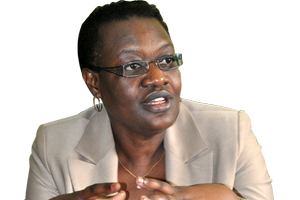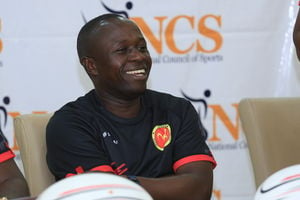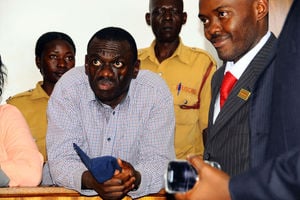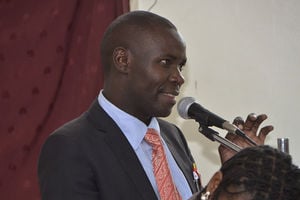
Mr Isaac Ssemakadde
If we, the lawyers of Uganda, are to practice the law well, then part of our duty will be to take a keen interest in how the laws we are expected to argue, for the benefit of the public, are made.
If the laws are bad, or the process of making them is bad, then the outcomes will not be good. You cannot successfully plant a field—however fertile—with a badly made hoe.
What happened to our lawmaking?
Going by the events of last week, Ugandan law is neither good, nor being made well. The laws are bad, and the process of making them is faulty.
The arguments about how the coffee industry ought to be regulated are natural and to be expected.
This is a major income earner, and employer of Ugandan people and others. The issue is not simply about which side is “right” and which is “wrong” over the matter at hand.
What is important is for all Ugandans to feel that their views were properly represented during the discussion and debate, and that whatever law was decided upon, it was made in good faith.
Furthermore, that should there be problems in the future created by any of the current changes in the law, then another discussion, based on the evidence of experience, will also be initiated in good faith, and new amendments made.
In short, that whatever is proposed as a law, be it from government or elsewhere, the lawmakers will have the full freedom to discuss it in a free and fair manner, without interference, manipulation or intimidation from anyone, and that their conclusions will be respected and upheld by the rest of the state (the Presidency, and the Courts).
The reality is that the things we have just witnessed in Parliament are not new. We have seen this
many times before; both with the current government, and also in earlier ones going all the way
back to the period of Independence.
1962-1985
The earliest abuse was the rushing through the First Parliament (1962-1966) a law to enable
political ally of Prime Minister Obote to re-claim the Busoga throne and assent to the office of Vice President in violation of agreed Busoga custom.
The next, most famous and most relevant here, was the imposition of a new constitution (itself
written in the previous 24 hours) on the Second Parliament (1967-1971) basically at gunpoint. On top of other violations of procedure, members were required to first vote to approve the new
constitution before being able to read it.
The period under General Amin simply dispensed with the pretence that there was any respect for Parliament, and never convened one. What is more, a number of former parliamentarians were among the victims of the killings of that period.
The physical intimidation of Parliamentarians continued in the 1981-1985 period that followed
Amin’s departure. To begin with, many seats were allocated to the losers and not the actual winners.
Some Opposition parliamentarians were also in time abducted. Some disappeared while others
remained detained.
1986 to-date
With the arrival of the National Resistance Army/Movement (NRA/NRM) government in 1986, the
expectation—as well as the promise—was that these things were now at an end.
We can choose to overlook the initial period of the NRA rule, during which the army-installed
President was also the Speaker of what was operating as the Fifth Parliament (1986-1995).
However, looking back, perhaps this was a taste of things to come. It may be safe to say that those in power over us have never fully understood the meaning of the doctrine of Separation of Powers, and exhibit incorrigible contempt for the importance of correct procedure.
In the Sixth Parliament (1996-2001), there was an instance where the regime used its numerical
majority in the House to vote to suspend the Rules of Procedure related to a particular kind of
constitutional amendment so as to pass the amendment without the usual procedure, and then voted to put back the same Rules of Procedure afterwards.
The drama surrounding the debates over the creation of structures and policies for the oil industry in the Ninth Parliament (2011-2016) should also be remembered: members were not permitted to study the proposed contracts with investors; simply to vote on them. A similar approach was expected during the debates to lift presidential term limits. In that case, money was used as an open inducement.
This entrenched disrespect for how laws should be made finally exploded into open violence
during the presidential age limit debates of the Tenth Parliament (2016-2021). Unfortunately, in the Supreme Court litigation that ensued, by a majority of 4-3 the top court upheld a law processed through violence.

Mityana Municipality MP, Francis Zaake (C) reacts after he was beaten by Kilak North MP, Anthony Akol during a scuffle as the House debated the National Coffee (Amendment) Bill, 2024 on November 6, 2024. PHOTO/ DAVID LUBOWA
Finally, last week we again witnessed security operatives violating the principle that the
physical power of the Executive should not be imposed on Parliament (or the Judiciary, for
that matter) by entering right to the floor of the House and manhandling elected members (as
well as accredited journalists) out of there.
This had been seen previously in terms of the disrespect to the Judiciary as far back as March 1,
2007 with what is now known as the “Black Mamba” incident.
A Mindset Problem
What does all this mean? It tells us that the problem lies in the Executive, and its mindset.
The Constitution of the Republic of Uganda has been serially violated and abused by the Executive.
In fact, its very creation may have been an example of that abuse, since the NRM was operating a secret caucus within the Constituent Assembly.
Who is the Executive, as far as it touches on the Law? This branch comprises the Presidency (which commands the military and other security organisations), and the offices of the Attorney General and the Director of Public Prosecutions. We have long insisted that there is an abnormal Executive influence on the workings of the other branches of government.
To simply condemn this latest violation of fundamental constitutional principle would be to avoid the real issue. As we have explained, the governance crisis of this country is very long-standing.
And it has always been rooted in an Executive having, and giving itself, too much power, at the
expense of the other branches of government.
Until a remedy is found for that, we should expect not just more violations, but also more audacious ones.
Uganda Law Society will focus on what can practically be done in the meantime to curb Executive overreach.
First, we shall create better awareness about exactly how abnormal and dangerous this current
situation is. For too many people, be they educated or not, lawyers or not, constitutional dysfunction has been normalised. The simple fact that Uganda has never been properly and constitutionally governed in the entire period of its existence, is lost on too many of us.
The second task is to hold those directly involved in these violations to account. This may take the form of demanding a judicial review of this so as to unearth as much information as possible about all such previous violations. It may take the form of straightforward litigation, or a Commission of Inquiry. Failing those two (or in conjunction with them) a Peoples’ Tribunal aimed at getting at the facts.
It goes without saying that the Uganda Law Society condemns not just this latest constitutional
travesty, but also those who designed and carried it out.
As I said in the beginning, good laws cannot come out of bad processes.
Last Wednesday, the National Coffee (Amendment) Bill was passed. What other laws will be
created or amended through violence? Lawyers, lawmakers, and Ugandans as a whole (over whom these laws are made), need to reflect very deeply on this.
Isaac Ssemakadde is the president of Uganda Law Society.








